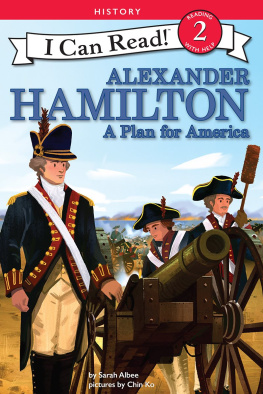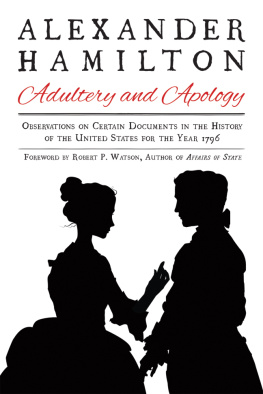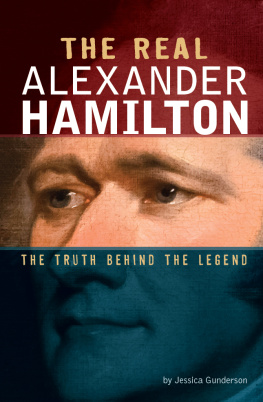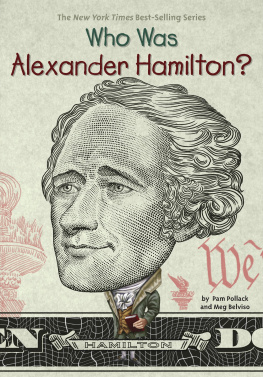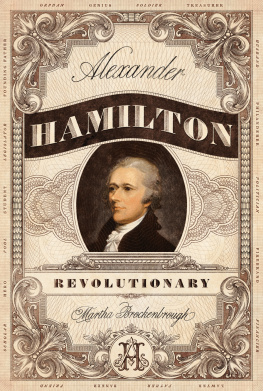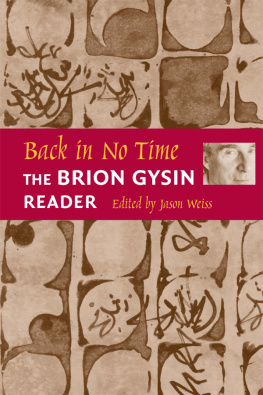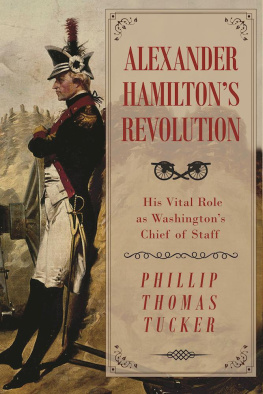Brion McClanahan - How Alexander Hamilton Screwed Up America
Here you can read online Brion McClanahan - How Alexander Hamilton Screwed Up America full text of the book (entire story) in english for free. Download pdf and epub, get meaning, cover and reviews about this ebook. year: 2017, publisher: Regnery Publishing, genre: Politics. Description of the work, (preface) as well as reviews are available. Best literature library LitArk.com created for fans of good reading and offers a wide selection of genres:
Romance novel
Science fiction
Adventure
Detective
Science
History
Home and family
Prose
Art
Politics
Computer
Non-fiction
Religion
Business
Children
Humor
Choose a favorite category and find really read worthwhile books. Enjoy immersion in the world of imagination, feel the emotions of the characters or learn something new for yourself, make an fascinating discovery.

- Book:How Alexander Hamilton Screwed Up America
- Author:
- Publisher:Regnery Publishing
- Genre:
- Year:2017
- Rating:4 / 5
- Favourites:Add to favourites
- Your mark:
- 80
- 1
- 2
- 3
- 4
- 5
How Alexander Hamilton Screwed Up America: summary, description and annotation
We offer to read an annotation, description, summary or preface (depends on what the author of the book "How Alexander Hamilton Screwed Up America" wrote himself). If you haven't found the necessary information about the book — write in the comments, we will try to find it.
How Alexander Hamilton Screwed Up America — read online for free the complete book (whole text) full work
Below is the text of the book, divided by pages. System saving the place of the last page read, allows you to conveniently read the book "How Alexander Hamilton Screwed Up America" online for free, without having to search again every time where you left off. Put a bookmark, and you can go to the page where you finished reading at any time.
Font size:
Interval:
Bookmark:
Table of Contents
A lexander Hamilton is one of the three most important members of the founding generation, and it could be argued that he is the most important member. His reputation has been revitalized since the 1990s, most conspicuously by Ron Chernows runaway best-selling biography and later by Mirandas Broadway hit musical Hamilton, but it was not always so stellar. Hamilton was at one time the punching bag for the anti-elitist strain of the progressive Left, many of whom considered the American founders to be little more than self-interested, racist aristocrats without concern for the common man. Never mind that the much respected progressive philosopher Herbert Croly called for a federal government that mixed the activism of Hamilton with the democracy of Thomas Jefferson to create a real progressive agenda. Hamiltons ideas on federal power were as much a part of the Square Deal and the New Deal as Jeffersonian appeals to the common man.
Even while denigrating the Founding Fathers in general, most leftist Americans viewed Jefferson as one of their own, the peoples president who favored the laboring class over the well-heeled members of an old American aristocratic order. Hamilton then took the role of villain, the greedy capitalist lining up with American big business and special interests, the true architect of the ruinous American economic order that favored profits over people, money over man. This false narrative influenced generations of Americans, even those on the Right, who began to see Hamilton and the Federalists as their intellectual forefathers. If the Left admired Jefferson, then the Right had to not only accept Hamilton, but embrace him.
And there was much to like. Hamilton, more than any other member of the founding generation, represented the real American ideal. He was born a bastard son in the British West Indies, a young boy who pulled himself up by his bootstraps after his father abandoned him and his mother died. When he was just a teenager he was allowed to run a thriving merchant firm in the West Indies while the proprietor was away on business. Hamilton arrived in America in 1772, and during the crisis with Great Britain he caught the eye of several leading patriots with the publication of two political writings that showed both maturity and guile. This would become a hallmark of his career. If nothing else, Hamilton was a skilled writer and rhetorician with a persuasive and elegant pen. But this is not how Hamilton wanted to be remembered. Like many young men filled with martial vigor, Hamilton wanted glory on the battlefield.
He volunteered for service during the early stages of the American War for Independence. Hamilton could never be called a sunshine patriot. He stood firmly with independence from the outset of hostilities and maintained his resolve even through the darkest periods of the war. Much of that time was spent as George Washingtons aide-de-camp. Appointed to that position at only twenty-one, Hamilton had access to both the leading men in America and foreign leaders, particularly the Marquis de Lafayette of France. Washington recognized Hamiltons talents, and the close relationship between the two would later help mold and define the powers of the general government. Hamilton was aspiring, hard working, intelligent, and determined. What he lacked in proper rearing he made up for in observation and ambition, and he loved America, so much so he was willing to die for it during the war.
And here is an important distinction. Hamilton never claimed a state as his home. He settled in New York and married into the Schuyler family, one of the oldest and wealthiest clans in the state, but his attachment was to America and not New York. This American nationalism represented a key difference between Hamilton and Jefferson. Jefferson called Virginia his country and had a commitment to federalism based on provincial attachment to his native soil. To Jefferson, not all issues were national, and not all issues were worthy of discussion in the federal capital. Yet, to Hamilton, preservation of a strong central government became an essential component in an effort to root out dangerous forms of democratic thought, and arrest a potential slide into an American version of the French Revolution. His exemplar was the British Constitution and the old European order, an order Hamilton was not born into but adopted by custom and practice. Russell Kirk doted on Hamilton in his famous The Conservative Mind, but he thought Hamilton was too idealistic to understand how a strong central government could undermine his efforts to eradicate the leveling spirit of the eighteenth century. Kirk was just another in a long line of intellectual historians who passed Hamilton over in favor of other Founders to cherish. The longtime conservative historian Forrest McDonald discussed Hamiltons financial brilliance in a 1979 biography, but it was little noticed outside of academic circles. Hamiltons reputation waited patiently to be rescued from the intellectual abyss of the progressive era.
That all changed in 1992 when the conservative columnist George Will wrote that, There is an elegant memorial in Washington to Jefferson, but none to Hamilton. However, if you seek Hamiltons monument, look around. You are living in it. We honor Jefferson, but live in Hamiltons country, a mighty industrial nation with a strong central government. The American capitalist economy, they argued, owed its success to Hamilton. The New York Historical Society made Brookhisers book the centerpiece of a traveling exhibition on Hamilton, and just five years later, Ron Chernows thick biography of the first secretary of the treasury rocketed to the top of the New York Times bestseller list. While Chernow is no conservative, his treatment of Hamilton resonated with every conservative thinker who adopted Hamilton as their guy. To these conservatives, Hamilton represented what was best about America, namely big business, big banks, and a big military.
But if conservatives now believed that Hamilton was the man to emulate, they soon had to fight the progressive Left for that honor. It seems all the attention Hamilton was receiving led the Left to rethink their disdain for the man. Maybe he was one of them. In 1997, leftist historian Michael Linds Hamiltons Republic traced Hamiltons influence from Lincoln to LBJ. It seems Hamilton was pretty good after all. Who could deny the expansion of the general government in the twentieth century to fight poverty, racism, and injustice? Wasnt that Hamiltons Republic?
Others soon echoed that sentiment. In 2002, liberal political scientist Stephen Knott published an intellectual biography which claimed that all of the great accomplishments of the twentieth century, from beating back fascism in World War II, to space exploration, to open borders, and the eradication of Jim Crow segregation, were all directly attributable to Hamiltons America. Liberals began worshipping Hamilton so much that the leftist Brookings Institute dusted off The Hamilton Project in 2006, a program aimed at creating more government influence in social programs. All of this landed Hamilton on Broadway via a hip-hop tour through the founding generation that champions his immigrant past, his rags to riches story, and his influential pen. To the producers of the show, that Hamilton, though flawed, embodies the American spirit. Barack Obama has called the show, and by default Hamiltons life, a story for all of us and about all of us.
So who is the real Alexander Hamilton? The elitist champion of finance capitalism and national greatness conservatism or the social justice warrior who drew up the blueprints for every progressive program of the twentieth century?
At least to an extent, both, and therein lies the problem with Hamilton worship.
Next pageFont size:
Interval:
Bookmark:
Similar books «How Alexander Hamilton Screwed Up America»
Look at similar books to How Alexander Hamilton Screwed Up America. We have selected literature similar in name and meaning in the hope of providing readers with more options to find new, interesting, not yet read works.
Discussion, reviews of the book How Alexander Hamilton Screwed Up America and just readers' own opinions. Leave your comments, write what you think about the work, its meaning or the main characters. Specify what exactly you liked and what you didn't like, and why you think so.


